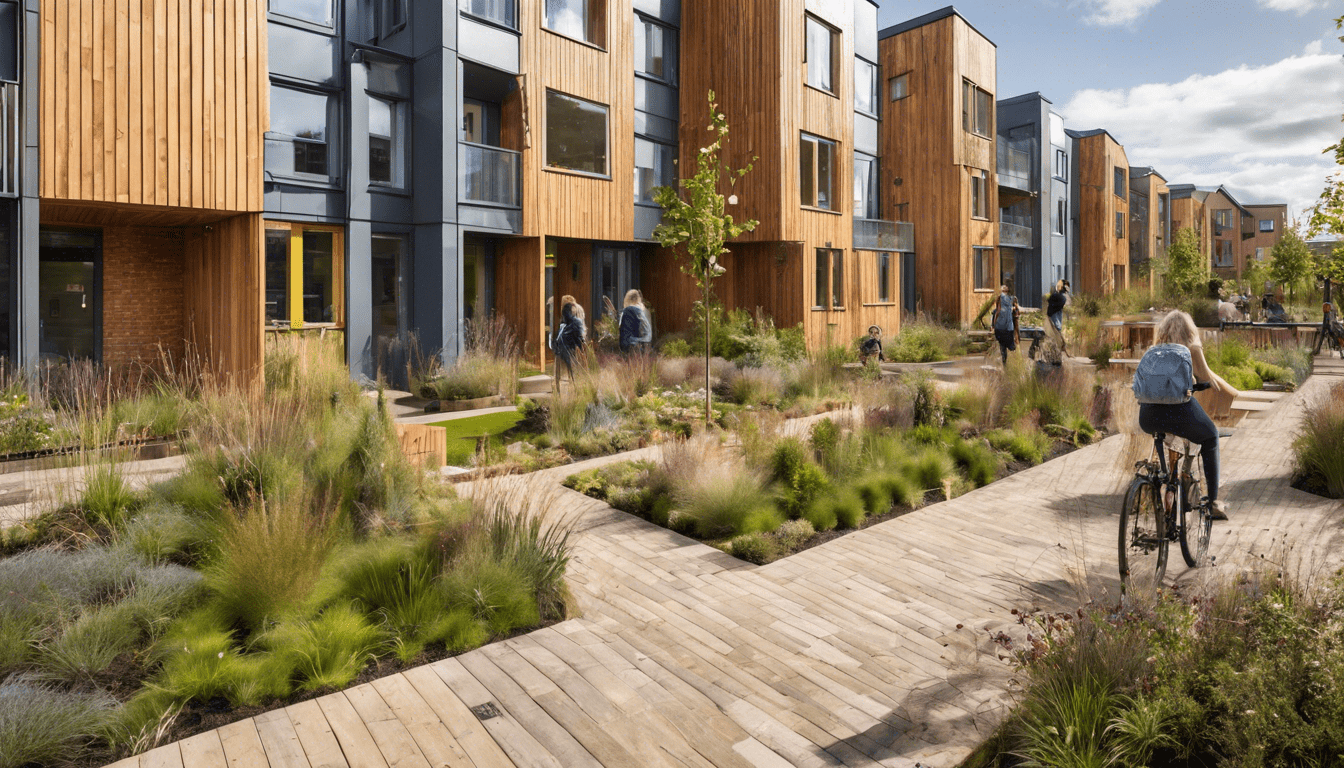Affordable housing has become a significant concern in modern society, as skyrocketing housing prices and stagnant wage growth leave a considerable faction of the population grappling with the issue of finding budget-friendly living arrangements. This concept encompasses not only the availability of housing at prices that can be met by a substantial portion of the community, but it also involves ensuring that such housing is of adequate quality and offers the necessary amenities to support a healthy lifestyle. In this article, we will delve into the myriad of factors underscoring the importance of affordable housing in the current economic climate, explore innovative solutions that various stakeholders are implementing, and examine notable case studies that highlight successful affordable housing projects. Furthermore, we will address the ongoing challenges in achieving substantial progress in this field and identify future trends and opportunities that can foster the creation and sustainability of affordable housing.
Key Takeaways
- Affordable housing is essential for economic stability and social equity.
- Innovative housing solutions include modular construction and community land trusts.
- Challenges such as zoning laws and funding hinder the progress of affordable housing projects.
- Successful case studies from various regions provide valuable insights for future initiatives.
- Future trends indicate a growing emphasis on sustainability and inclusivity in affordable housing development.
Introduction to Affordable Housing
Affordable housing refers to housing units that are economically accessible to individuals and families earning a median income or lower. The concept aims to ensure that a significant portion of a community can afford to live within their means while still having access to quality accommodations (United Nations, 2016). The growing concern around affordable housing has risen in recent years due to the increasing disparity between incomes and housing costs in urban areas, which has led to heightened homelessness and housing instability. Governments and NGOs are actively working to develop affordable housing solutions, such as inclusive zoning laws, public-private partnerships, and the construction of lower-cost residential units. Decision-makers must not only focus on the quantitative aspect of housing supply but also consider the geographical distribution and social services associated with these developments to foster sustainable communities (Bramley, 2019). By tackling the issue of affordable housing, societies can promote economic diversity, social equity, and community resilience in an ever-changing global landscape.
The Importance of Affordable Housing in Today’s Economy
The importance of affordable housing in today’s economy cannot be overstated, as it plays a vital role in fostering economic stability and community wellbeing. As urban populations grow, the demand for affordable housing continues to rise, emphasizing the need for accessible living options for low to middle-income families. Affordable housing not only mitigates homelessness but also enhances the overall quality of life, enabling residents to allocate their financial resources towards education, healthcare, and further economic participation, rather than disproportionately expending their income on housing costs (Bramley, 2019). Furthermore, the provision of affordable housing stimulates local economies by creating jobs in construction and related sectors while contributing to a healthier workforce and community cohesion. In this light, affordable housing is not merely a social issue; it is integral to economic development and sustainability (Stein, 2021). Therefore, addressing the challenges associated with affordable housing must be a priority for governments and policymakers to ensure a balanced economy and inclusive growth.
‘Housing is a basic need and a human right. It cannot be treated as a commodity for profit.’ – Leilani Farha
Innovative Solutions for Affordable Housing
Innovative solutions for affordable housing have become increasingly essential in addressing the global housing crisis. With a rising population and escalating property prices, traditional methods of construction and financing are proving inadequate (National Housing Federation, 2022). One promising approach is the use of modular construction techniques, which involves prefabricating sections of homes in factories, allowing for quicker assembly on-site, reducing costs and waste (Friedman, 2021). Additionally, co-housing schemes, where residents share amenities and resources, have emerged as a community-focused model to enhance affordability while fostering social ties (McCambridge, 2023). Governments and private organisations are also exploring mixed-income housing developments that integrate affordable units within market-rate communities, thereby promoting inclusivity and diversity (Department for Levelling Up, Housing and Communities, 2023). These innovative strategies not only aim to provide affordable housing but also enhance community wellbeing and sustainability.
Challenges in Achieving Affordable Housing
The issue of affordable housing has emerged as a significant challenge across many urban areas globally, where demand consistently outstrips supply. Rapid urbanisation, coupled with the rise in living costs, exacerbates the situation, making it increasingly difficult for low- to middle-income families to secure housing that meets their financial capabilities. Furthermore, restrictive zoning laws and land-use policies often hinder the development of new housing projects, while rising construction costs, driven by factors such as material shortages and labour market constraints, further impede progress towards affordable housing solutions (Kearns et al., 2020). The impact of these challenges is multifaceted—housing insecurity can lead to wider socio-economic issues, including increased homelessness, strain on public services, and adverse effects on community cohesion (Pawson et al., 2021). Ultimately, addressing these challenges requires collaborative efforts between governments, private developers, and community organisations to create sustainable housing policies that prioritise the needs of all members of society.
Case Studies of Successful Affordable Housing Projects
Affordable housing has increasingly become a focal point of urban development policies across the globe. Notable case studies exemplify successful strategies to provide affordable housing, such as the ‘Brixton Regeneration Project’ in London, which revitalised a previously run-down area into a thriving community with mixed-income housing options (Smith, 2020). Another remarkable case is the ‘Tampa Affordable Housing Initiative’ in Florida, where public-private partnerships have significantly increased the availability of affordable units while ensuring sustainable community development (Jones, 2021). Additionally, the ‘Vienna Model’ demonstrates how integrated housing policies can foster diversity and prevent socio-economic segregation through a comprehensive mix of rental, ownership, and social housing units, thus safeguarding residents at various income levels (Müller & Steiger, 2019). These case studies underline the importance of multi-stakeholder collaborations and innovative financing models to effectively address the escalating demand for affordable housing, ultimately contributing to the creation of inclusive and resilient urban environments.
Please ask us questions via WhatsApp, email, or direct messaging.






